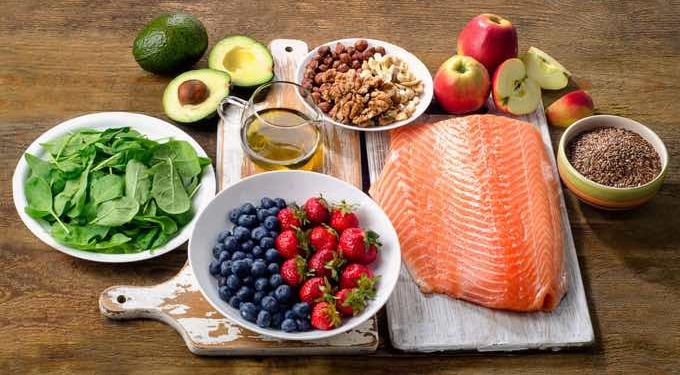
Few aspects of life are as confusing as health in this day and age. Every time we turn on the TV, commercials for different weight loss programs fill our ears with conflicting information. Wellness “gurus” on social media all claim to have the secret formula as a way to attract followers.
Luckily, health is much more ambiguous than we’re often led to believe. Despite what your favorite influencer might have to say, no magic superfood exists that has the power to cure any ailment. Conversely, there isn’t a single food that – when consumed in moderation as part of a balanced diet – causes disease.
When you peel back the many layers, it becomes apparent that many claims in the world of health and wellness are utterly unfounded. Looking through an evidence-based lens reveals many myths that have no basis in science.
WHAT DOES IT MEAN TO BE HEALTHY?
Ah, the million-dollar question. Discovering the answer unlocks the door to eternal happiness, longevity, and success…right? If only it were that simple. The truth is that every single person has a unique pathway to becoming their healthiest self. Frustrating as that might sound, how different we all are is such a beautiful thing.
In the dictionary, health is defined as “the state of being free from illness or injury.” What a simplistic explanation for something that often seems so far out of reach! Recognizing how basic of a statement it puts things into perspective and acknowledges what being healthy truly means.
Health isn’t the most expensive collagen powder money can buy. It isn’t participating in every wellness trend, such as sugar detoxes, juice cleanses, and low-carb diets. True healing involves eating, moving, and overall going about life in a way that allows our freedom. As it turns out, stepping into the best version of yourself shouldn’t be a complicated or confusing journey.
WHY IS HEALTH SUCH A CONTROVERSIAL TOPIC?
We can sum this up in one short word: money. Today, knowing who to trust might as well be rocket science. Even published scientific studies are often biased due to sponsorship by food or drug companies.
Social media is an even more toxic entity. Posts are primarily unregulated, so people are free to pass their opinions off as fact and fool millions of vulnerable viewers. With the rise of branded content, the validity of information is even more inaccurate since influencers are being paid to promote products.
The real danger is when health professionals, such as functional medicine doctors, illicit fear-mongering on their social platforms. Individuals who should be sharing nothing but evidence-based research do just the opposite for publicity’s sake. These people will go to whatever lengths are necessary to gain followers and therefore sell more supplements or diet protocols.
For most of us with no severe illnesses, going back to the basics: nourishing food, adequate hydration, joyful movement, and stress reduction is all it takes. After all, obsessing over being healthy is one of the unhealthiest things you can do.
3 MYTHS ABOUT HEALTH YOU NEED TO STOP BELIEVING
-
It has to be restrictive.
It’s easy to understand why so many people believe this lie. Everywhere we look, a different weight loss program is touting itself as the unique key to health and longevity. Transformation photos showcase remarkable results achieved by dedicated followers. People rave about how their skin is glowing, and they feel ten years younger.
So what do all these diets have in common? A caloric deficit. Pick your poison: keto, paleo, intermittent fasting, or any of the numerous other fads out there today. Weight loss appears effortless on all these plans because they either eliminate entire food groups or restrict one’s eating window.
To lose weight, of course, you must burn more calories than you take in. This can be achieved by eating the foods you genuinely enjoy rather than following a diet to which adherence is difficult.
Better yet, why not ditch the weight loss goals and focus on merely adopting more healthful behaviors instead? 95% of diets fail, and it isn’t because people lack willpower. The human body is brilliant in that it drives us to compensate for restriction, whether perceived or overt. Yes, even mentally denying yourself permission to eat certain foods causes the body to feel starved. (1.)
Allowing all foods while exercising moderation and enjoyably moving your body is the best method for long-term weight loss. The best part? No calorie counting or stepping on the scale required.
-
It requires a lot of money.
Health can be expensive, but it certainly doesn’t have to be. Spending any length of time in the wellness corner of Instagram seriously skews our perception about this. Smoothies loaded with every adaptogen out there, fancy nut butters that cost upwards of $20 a jar…the list goes on.
Influencers and companies lead us to believe that these things are necessary to lead a healthy lifestyle. That couldn’t be any farther from the truth. In fact, health, as it’s defined, is fairly simple. Remember those three pillars – real food, exercise, and stress management – we discussed earlier?
















